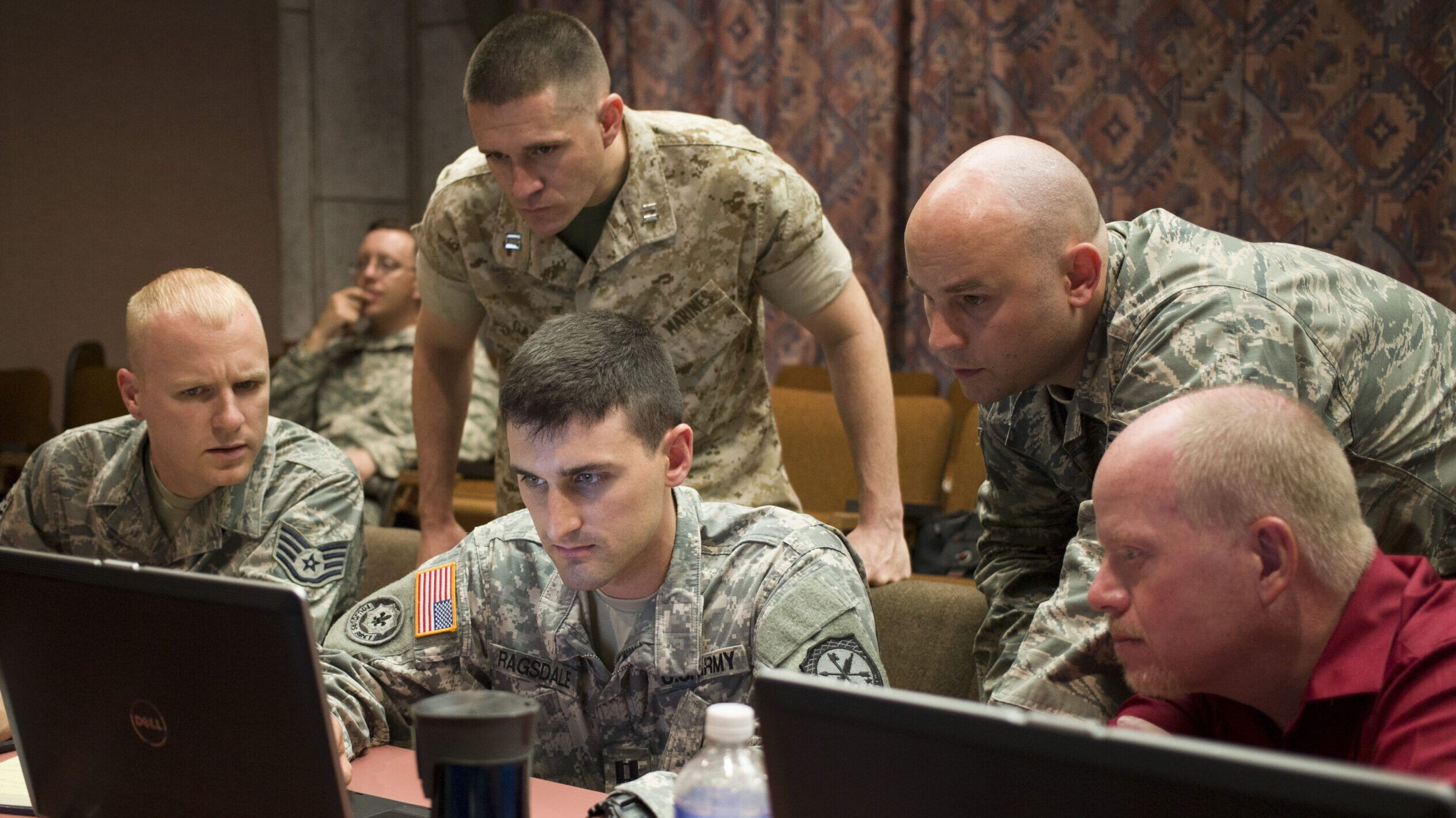JASPREET GILL

Navy Commander Kevin Blenkhorn, a computer sciences professor at the U.S. Naval Academy, works with his Joint Services teammates during the U.S. Army’s ‘Cyber Center of Excellence’ Tuesday, June 10. (Georgia Army National Guard photo by Staff Sgt. Tracy J. Smith)
TECHNET CYBER 2023 — The military services need to figure out how to better integrate and leverage disruptive technologies like artificial intelligence into data-driven decision making, and senior cyber officials said today they need industry’s help to do it.
Using current technology right now, Lt. Gen. Maria Barrett, commanding general of US Army Cyber Command, said that work is “tremendously complex.”
“Anything we can do to buy down that complexity by leveraging AI and [machine learning] would be absolutely fantastic and essential for, I think, the challenges that we face in the future,” she told the audience at the AFCEA’s TechNet Cyber conference in Baltimore. “I think we have the underpinnings of starting to be able to take advantage of it from an Army cyber mission standpoint.”
The military services and, more broadly, the Defense Department have been exploring ways that AI can be used in the future. As a part of that push, DoD stood up the Chief Digital and AI Office and, in January, the Pentagon announced it updated its decade-old guidance on autonomous weapon systems to include advances made in AI.
In a sign of how ubiquitous AI has become recently, Director of the Defense Information Systems Agency Lt. Gen. Robert Skinner began his keynote not speaking himself, but with a generative AI that cloned his voice and delivered the start of his remarks.
“Generative AI, I would offer, is probably one of the most disruptive technologies and initiatives in a very long, long time,” Skinner said after becoming himself again. “Those who harness that and can understand how to best leverage it, but also how to best protect against it, are going to be the ones that have the high ground.”
Skinner added DoD needs industry’s help in understanding how to leverage AI faster and better than adversaries, and to understand how AI can apply to cybersecurity, intelligence gathering and warfighting capabilities.
“So how do we have the protective systems, the security and the network capabilities to support protecting that data and support our folks?” he said.
Maj. Gen. Joseph Matos, deputy commander of the Joint Force Headquarters-Cyber (Marines) and Marine Corps Forces Cyberspace Command, echoed Skinner’s remarks, said industry can lead the way in sharing knowledge about disruptive technologies with the force.
“We all hear about it [AI], we see it, we use it, but we are nowhere near at the skill level that industry has when it comes to operating this technology to [its] best utilization, defending that capability, whether that’s cloud or…how we’re going to use AI,” Matos said today. “That’s where industry comes in and the knowledge that you all can provide us because…the military schooling system is, as you know, a long and arduous process and to change the programs of instruction takes millions of years and thousands of lives to do.”
Matos added that while AI is “still a very nascent technology,” particularly for the military, the services need to think about how to incorporate it in the most beneficial ways.
No comments:
Post a Comment